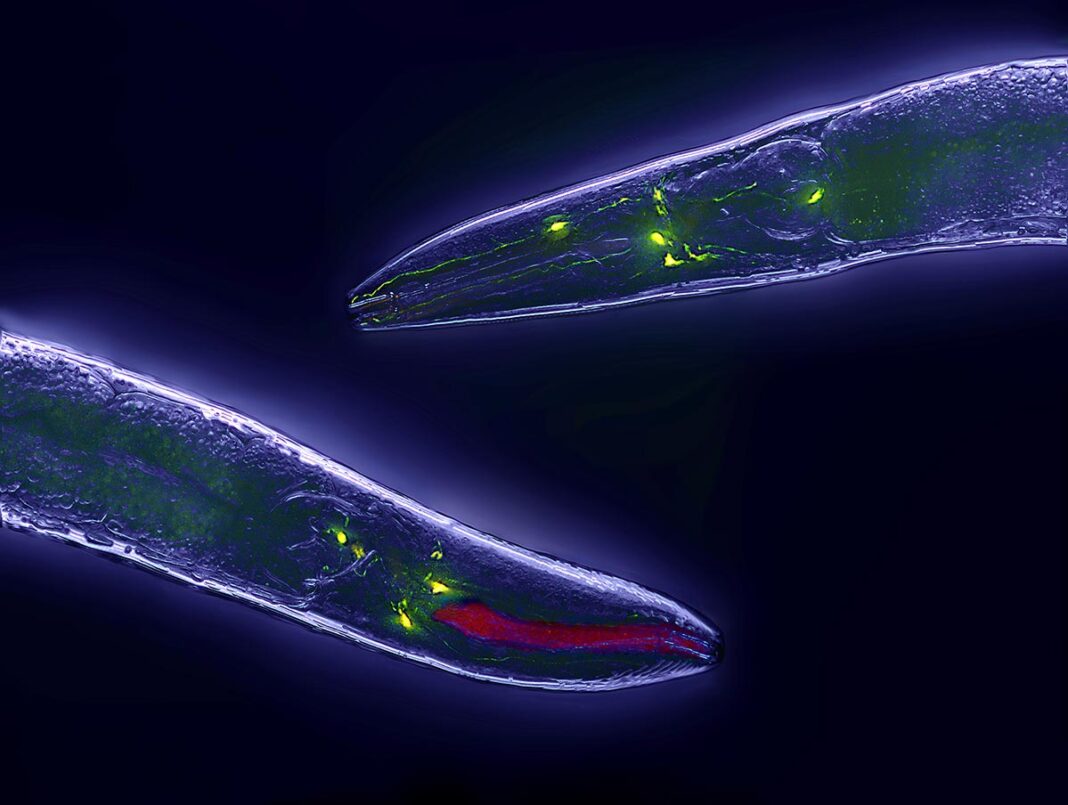Research conducted by scientists at the Howard Hughes Medical Institute (HHMI) reveals significant insights into how longevity traits can be inherited in the model organism, C. elegans. Published on March 15, 2024, in the journal Science, the study titled “Lysosomes signal through the epigenome to regulate longevity across generations” highlights the role of lysosomes in transferring longevity markers from parent to offspring.
Led by Dr. Meng Wang, a senior group leader at HHMI’s Janelia Research Campus, the research builds upon previous findings that demonstrated a remarkable lifespan extension in C. elegans when a specific enzyme in their lysosomes was overexpressed. In those earlier experiments, worms exhibited lifespan increases of up to 60 percent. Surprisingly, even the offspring of these genetically modified worms, which did not inherit the modification, also lived longer than their typical counterparts.
The new research investigates the underlying mechanisms of this transgenerational longevity. The team hypothesized that certain modifications occurring in the lysosomes of parent worms were being transmitted to their reproductive cells, thereby influencing the lifespans of their descendants.
Mechanisms of Epigenetic Inheritance
According to the study, the researchers discovered that alterations in the lysosomes of C. elegans are transmitted to reproductive cells through specific proteins that carry histones. These histones serve as messengers that modify the worm’s epigenome, allowing the lysosomal changes to be inherited without altering the fundamental DNA sequence.
Dr. Wang emphasized the significance of these findings, stating, “You always think that your inheritance is in the nucleus, within the cell, but now we show that the histone can go from one place to another place, and if that histone carries any modification, that means you are going to transfer the epigenetic information from one cell to another.” This statement underscores a groundbreaking understanding of how epigenetic information can be passed across generations.
The researchers identified a specific histone modification that was significantly elevated in the longer-lived C. elegans compared to those with standard lifespans. By employing various methodologies, including transcriptomics and imaging, the team established that fasting-induced changes in lysosomal metabolism initiate a cascade of cellular processes. This triggers an increase in a specific variant of histone, which is subsequently transported to the reproductive cells, allowing the longevity information to enter the germline.
Broader Implications of the Findings
The implications of this research extend beyond merely understanding lifespan inheritance. Dr. Wang and her team suggest that this mechanism could also elucidate how other inherited traits are passed down in C. elegans. For instance, the findings may shine light on previously documented transgenerational effects, such as how parental malnutrition can influence offspring or how epigenetic modifications related to environmental stressors can also be inherited.
This research not only advances the understanding of genetic inheritance but also opens avenues for exploring similar mechanisms in other organisms. As scientists continue to unravel the complexities of epigenetics, this study serves as a significant step in comprehending how traits associated with longevity can persist across generations in C. elegans and potentially other species.
In summary, the work from the HHMI team not only builds on previous findings regarding lifespan extension but also reveals a fascinating mechanism for how these traits can be inherited, contributing to the broader understanding of epigenetic inheritance in the biological sciences.
